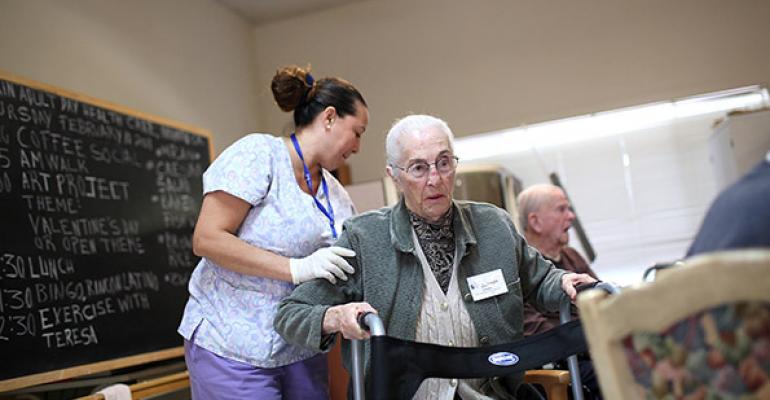On the death of a loved one and review of that individual’s estate plan, it sometimes turns out that the individuals who thought they were the beneficiaries of the estate aren’t. If an individual made changes to his estate plan while he was under the care of a non-relative and that caregiver is the new beneficiary of the plan, the result may be unjust. To address the obvious potential for abuse by caregivers of “dependent adults,” as well as certain others in positions that give them access to potentially vulnerable people, the California Probate Code (Probate Code) contains a presumption that donative transfers made to individuals in these positions are the product of fraud or undue influence. While this can often be a beneficial tool in preventing an elder abuser from receiving anything under the estate plan, failure to understand the provisions of law related to donative transfers to caregivers can accidentally cause a gift, which by all other measures would be valid, to fail.
Who’s Subject to Presumption
Probate Code Section 21380 requires three categories of individuals, and others affiliated with them, to affirmatively prove through clear and convincing evidence that the donative transfer ostensibly benefitting them wasn’t the product of fraud or undue influence. The three categories are: (1) the individual who drafted the instrument, (2) an individual in a fiduciary relationship with the transferor and who causes the instrument to be transcribed, and (3) a care custodian of a transferor who’s a dependent adult. The presumption also extends to relatives, co-habitants and employees of any of those individuals, as well as individuals affiliated with a law firm that drafts the documents. When a donative transfer is made to any individual within these categories, and that individual tries but fails in an effort to overcome the substantial burden of clearly proving the intent of a person who’s no longer alive, not only will the gift fail, but also that individual will then be responsible for the attorney’s fees incurred in contesting the gift.
Benefit of Presumption
The general benefit of this presumption is clear. When someone is in a fiduciary relationship or is a care custodian, that caregiver is given an intimate level of access to the individual under his care that can easily lead to abuse or exploitation. The Probate Code adds an additional layer of protection by either imposing the presumption or requiring that the gift in the estate plan receive an independent review by an independent attorney. Pursuant to Probate Code Section 21384, the presumption of fraud or undue influence doesn’t apply to gifts that have been reviewed by an independent attorney, who counsels the person making the estate plan away from any heir or proposed beneficiary to determine if there’s fraud or undue influence present, and then issues a Certificate of Independent Review (CIR) if appropriate.
Problems with CIRs
The use of CIRs to overcome the presumption of fraud or undue influence can prevent some potential abuse, but can also be used to sanction the very behavior they’re intended to prevent when obtained from an unscrupulous, or merely irresponsible, independent attorney who doesn’t perform his duties diligently. These CIRs may also place too much faith in the ability of attorneys to accurately evaluate certain issues related to the mental competency of the individual attempting to make the gift. Undue influence means “excessive persuasion that causes another person to act or refrain from acting by overcoming that person’s free will and results in inequity.[1]” One of the factors in determining if there’s undue influence is the vulnerability of the victim, which includes evidence of their “incapacity” or of “impaired cognitive function.”[2] This means that attorneys considering issuing CIRs are essentially being asked to provide an opinion related to a individual’s cognitive function, then to determine how that individual’s cognitive function relates to his proposed actions and finally to determine whether to provide professional approval to the proposed acts. While these CIRs serve a beneficial purpose, that purpose may be better served by incorporating medical professionals trained in making such determinations into the process.
Potential Trap
The presumption of fraud or undue influence can also act as a trap to inadvertently defeat an otherwise valid and appropriate testamentary gift. The definitions of “care custodian” and “dependent adult” can be surprisingly broad. A care custodian can include any “person providing health services or social services to elders or dependent adults,” and a dependent adult is any person 18 or older who has “physical or mental limitations that restrict his or her ability to carry out normal activities or to protect his or her rights.”[3] There are many individuals, particularly the elderly, who fall within this definition, and it’s clear that care custodians can include non-professionals and acquaintances.[4] In Bernard v. Foley, friends of the decedent were held to be care custodians because the decedent had resided with them for two months, during which time they did her grocery shopping, prepared some meals and occasionally assisted with personal needs such as bathing and diapering. As a result, the decedent’s attempt to benefit these friends through her estate plan failed.
With the rise of many non-traditional family relationships, in which individuals who consider each other family aren’t necessarily related by blood, marriage or adoption, this presumption deserves especially close attention. When an estate plan is created or modified late in life to benefit an unmarried life partner who maintains a separate residence, proper measures to certify the estate plan must be taken or the surviving partner can find himself faced not only with the loss of his loved one, but also with the burden of overcoming a substantial presumption against his receiving the financial support intended for them. The presumption of fraud or undue influence for gifts to care custodians is a powerful weapon against potential exploiters, but one that must be treated carefully to avoid unintended harm.
Endnotes:
1. Welfare & Institutions Code section 15610.70.
2. Ibid.
3. Bernard v. Foley, 39 Cal.4th 794, 801.
4. Ibid.






